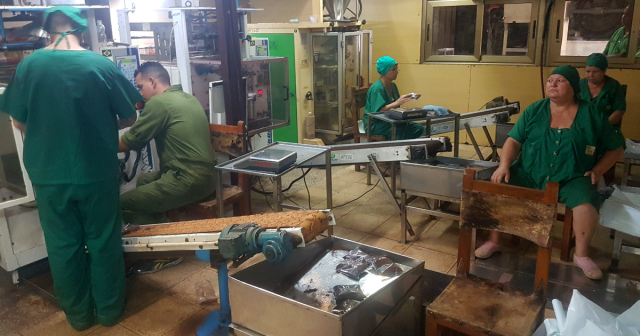
Thelack of coffee It affects the Cuban people throughout the country, generating discontent, to the point that the situation has been exposed in the official press.
In Holguín thepopulation has not received coffee since June. In that distribution theInternal Commerce Ministry He gave them the May quota that corresponded to them for the supply book.
For four months, the roasting factories in that province have not produced ground coffee "because of thelimitations with coffee beans"imported, according to the newspaperNow.
The same thing happens in Sancti Spíritus, since the month of May coffee has not been delivered to homes.Escambray He pointed out that in this territory the authorities said that "it is not known when the production of the demanded product could restart."
In Havana they have not given the coffee from the notebook for more than three months.Tribune confirmed it with a chronicle about the desire that Cubans have to drinka cup of coffee at least in the mornings.
HeInternal Commerce Ministry published a statement this Wednesday ensuring that "no product from the regulated family basket has been eliminated," but they warn that "There are delays in its distribution at the country level".
Juan Carlos Rosell Zarrabeitía, coordinator of programs and objectives of Commerce and Services of the provincial Government of Santiago de Cuba, reported that thedelay in coffee delivery and the oil is"no predictions".
In addition, they owe the population the grains in Songo-La Maya, Palma Soriano and Segundo Frente. They left a supposed "message of hope" for the residents of the territory and that is that they plan to "complete the delivery of September rice in the 98 missing warehouses, with an additional kilogram for children and those over 60 years of age."
Cuba is in the middle of adeep food crisis. The State is incapable of guaranteeing even regulated products to the population.
Theofficial press mentions the lack butdoes not report the reasons that are truly leading to a coffee shortage in Cuba.
The state media does not report the number ofcoffee beans produced in the country for export nor the profits that this high quality product is leaving for the regime.
Nor do they detail how low the productivity of coffee destined for national consumption is, in a country that was one of thelargest producers and exporters, but which has seen the quantity and quality of this product decrease from 1959 to the present.
While this data is silenced, the people spend months without being able to even put food on the table for breakfast.a simple cup of coffee.
What do you think?
SEE COMMENTS (1)Filed in:






